Central Tibet
14th century
This is the gesture of the Buddha calling the earth to witness his awakening.
Central Tibet
14th century
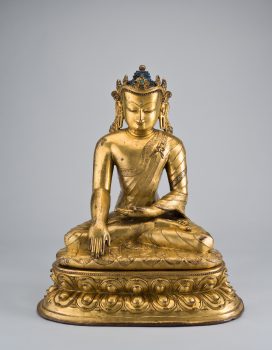
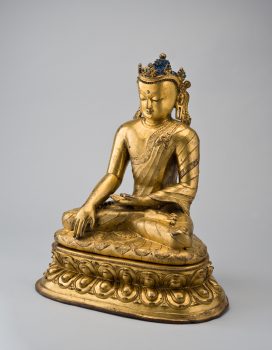
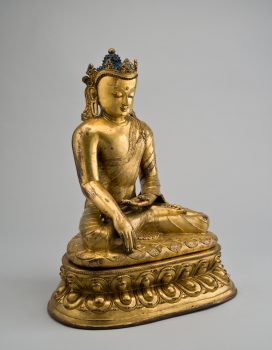
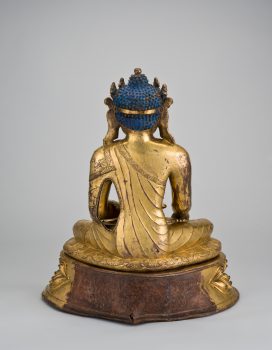
This sculptural representation of the Buddha shows him wearing a crown and monk’s robes, a convention that became known as Vajrasana Buddha. It refers to a famous image of the Buddha in Vajrasana (present-day Bodhgaya), India, that commemorated the Buddha’s enlightenment. Although in Tibet this type of Buddha’s image was also associated with the principal image at the main temple in Lhasa, images of the crowned Buddha were popular and well known in all of Asia, including the Himalayas and were among some of the earliest to come to Tibet.
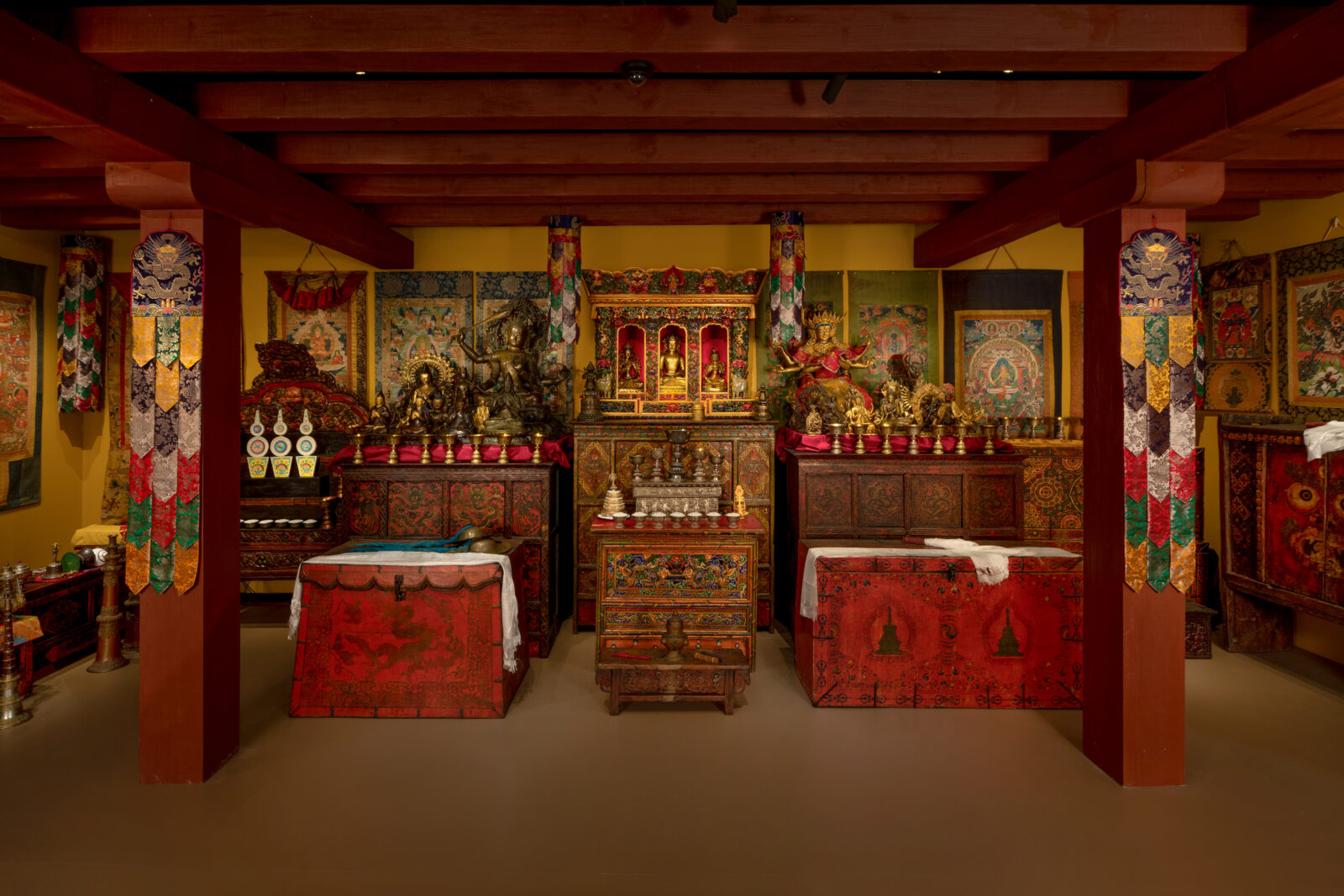
Photo by Dave de Armas
A state of “waking up” from illusion and seeing the true nature of reality. Buddha Shakyamuni attained enlightenment while meditating under the bodhi tree. Buddhist teaching explains that the accumulation of merit and wisdom are essential for achieving enlightenment, also known as awakening.
A state of “waking up” from illusion and seeing the true nature of reality. Buddha Shakyamuni attained awakening while meditating under the bodhi tree. Buddhist teaching explains that the accumulation of merit and wisdom are essential for achieving awakening, also known as enlightenment.
The cultivation of a strong aspiration to help sentient beings overcome suffering. In Buddhist Mahayana teaching, compassion is the seed for attaining full enlightenment.
An awakened being who understands the true nature of reality and is free from the cycle of birth, death, and rebirth. While there are many buddhas, Siddhartha Gautama is the historical Buddha, whose teachings became the foundation of Buddhism.
Today, Tibetans primarily inhabit the Tibetan Plateau, situated between the Himalayan mountain range and the Indian subcontinent to the west, Chinese cultural regions to the east, and Mongolian cultural regions to the northeast. During the 7th to 9th century, Tibetan rulers expanded their empire across Central Asia, and established Buddhism as the state religion.
Get the latest news and stories from the Rubin, plus occasional information on how to support our work.